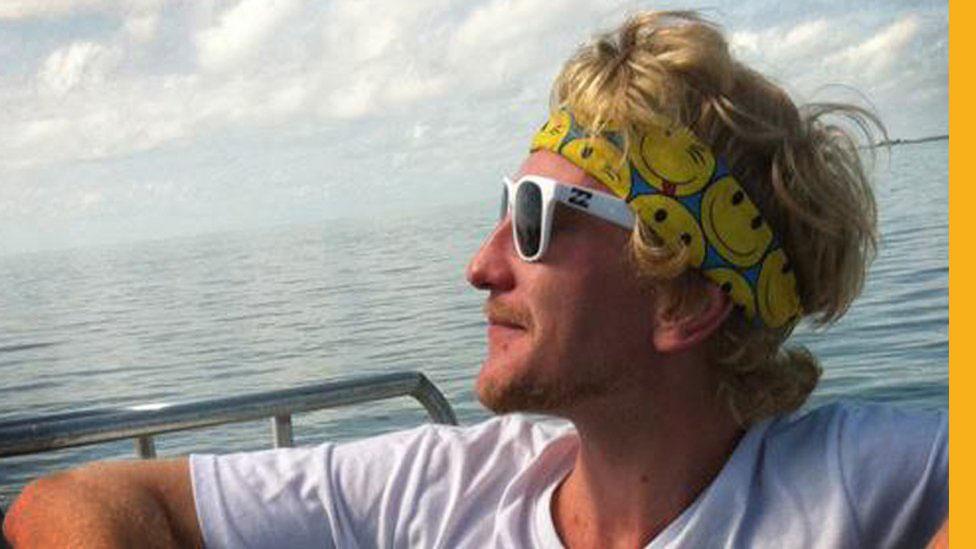Australian customers take on the banks
- Published
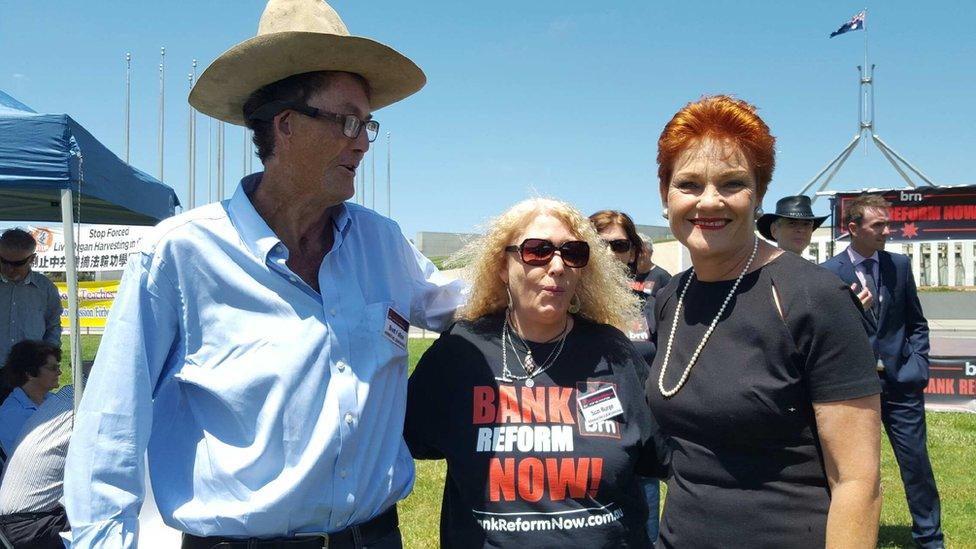
Brett Fallon (left) with One Nation leader Pauline Hanson (right) at bank rally in Canberra
In 2013, Brett Fallon doused himself in petrol and stepped into an open fire. The former landowner had blamed one of Australia's biggest banks for destroying his business and grinding him into suicidal despair. He survived, but only just.
"I thought, 'Bugger it, I can't beat these bastards.' I decided to terminate matters by tipping 15 litres of petrol over my head and walking into an open fireplace.
"I was in a coma for close to seven months, I received 40 or 50 skin grafts, I've had a multitude of operations and fingers amputated," he tells me.
"When I came out of the hospital and tried to get some clarity into my matters of banking I found that wall of silence still existed."
Mr Fallon has claimed his overdraft was cancelled by ANZ Bank and he was charged punitive rates of interest on other loans.
The bank says it has tried to assist Mr Fallon. In a statement, an ANZ spokesman said: "Since 2007… ANZ sought to work with Mr Fallon, including by providing him with a significant period of time to sell properties to reduce his debt."
But Mr Fallon is not alone. Reckless advice by rogue financial planners, overcharging and a lack of accountability have made highly profitable banks in Australia deeply unpopular.
Avalanche of criticism
The government wants to make it easier for disgruntled customers to seek redress through a new "low-cost, speedy tribunal", while the opposition believes that a powerful Royal Commission is the only way to forensically investigate the nation's biggest banks.
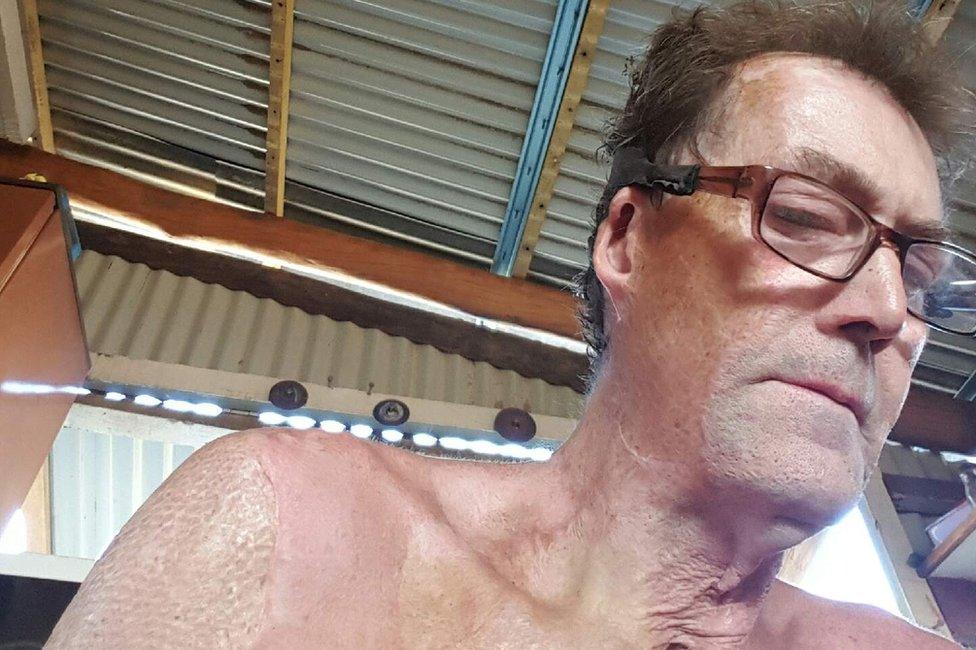
Brett Fallon needed dozens of skin grafts after he attempted to take his own life
The industry has responded to an avalanche of criticism, and has pledged to regain the community's trust.
For Tanya Hargraves it is an empty promise. The 65-year-old graphic designer and publisher, who lives on the outskirts of Canberra, is the victim of alleged predatory lending.
She told the BBC that she was convinced by her bank to take out a A$1.6m (US$1.9m; £935,000) property loan, but she soon realised her mistake as she began to fall behind with her repayments. She alleges Commonwealth Bank staff were unwilling to help as her life unravelled, and a property portfolio disappeared.
"They have left me destitute. They have stolen A$535,000 of my money. It is straight out theft. It happens so much in this country, it is wrong," she says.
"You can't fight [the banks] because you don't have the finances. Most of the lawyers… don't want to take on such a large organisation.
"There is no mercy. They don't care," she adds.
The Commonwealth Bank has denied any inappropriate behaviour and said the case had been subject to an independent review by the Financial Ombudsman Service, which found the bank had given "genuine consideration to the applicant's requests for assistance with her financial difficulty".
'Trust gap'
In October, the bosses of Australia's big four banks were called to appear before the House of Representatives Economics Committee in Canberra. The tone was one of contrition.
"In recent years it is clear a trust gap has opened up and we as an industry and as individual banks need to work harder to close that gap," Brian Hartzer, chief executive of Westpac Bank, told MPs.
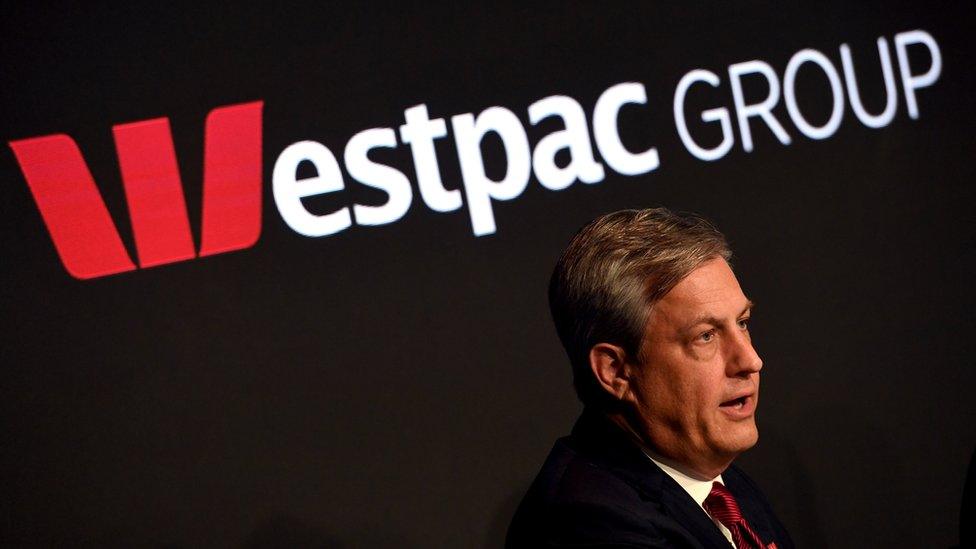
Westpac chief Brian Hartzer admits the industry needs to work harder to regain customers' trust
The Australian Bankers' Association (ABA) later insisted the sector would strive to become more accountable and transparent.
"Consumers are demanding action now, and we are responding," said ABA chief executive Steven Munchenberg.
"The industry is making major changes that address concerns about how bank staff are rewarded, the protection of whistleblowers, the handling of customer complaints and dealing with poor conduct. We are doing this with independent oversight."
Bank bashing is an Australian pastime that has its roots in the nation's fierce anti-authoritarian streak and its mistrust of large organisations, and its politicians.
Avenues of redress
"In the last couple of decades banks, particularly the big banks, have been re-identified as somehow the source of capitalist problems in Australia," explains Chris Berg, a senior fellow at the Institute of Public Affairs, a free market think-tank.
"We have got many complex regulatory challenges, but the idea that the banks are acting against the interests of the Australian population is utterly false."
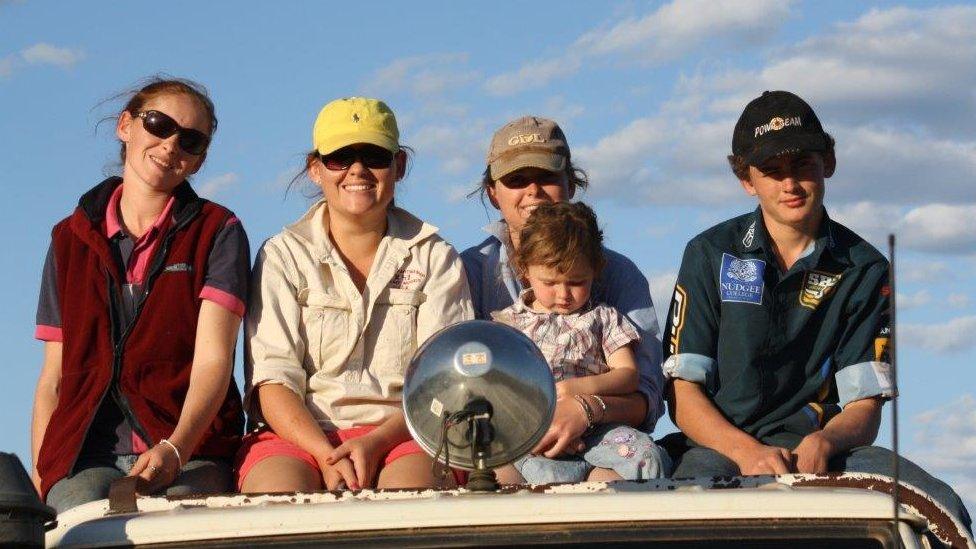
Catherine Stuart says her family were forced to leave their property
Angry customers currently have various avenues of redress: the Financial Ombudsman Service, the Superannuation Complaints Tribunal and the Credit and Investments Ombudsman Scheme.
They handle thousands of complaints each year, but a panel of experts is looking at whether those three dispute resolution measures can be replaced by a single super-agency to make the process easier and quicker.
'Absolutely horrendous'
In Charleville, 680km west of Brisbane, farmer Catherine Stuart is taking her grievances to Australia's Federal Court.
She had problems with her lender, Rabobank, and her A$3m debt and has alleged a restriction of trade. Mrs Stuart says her family were forced to leave their property in 2014.
"[The court case] is very, very complicated and many farmers are going through the same thing. We certainly need a banking inquiry or something to get to the bottom of this," she told the BBC.
"It is horrendous, absolutely horrendous. The effects on the family are just indescribable. The unconscionable behaviour of these financiers has a lot to answer for."
Rabobank Australia and New Zealand has denied any wrongdoing. "We worked patiently and supportively with them (Catherine Stuart and her family) for more than four years as they attempted to resolve their financial difficulties. It is only when all reasonable avenues… have been exhausted that the bank moves to recovery action."
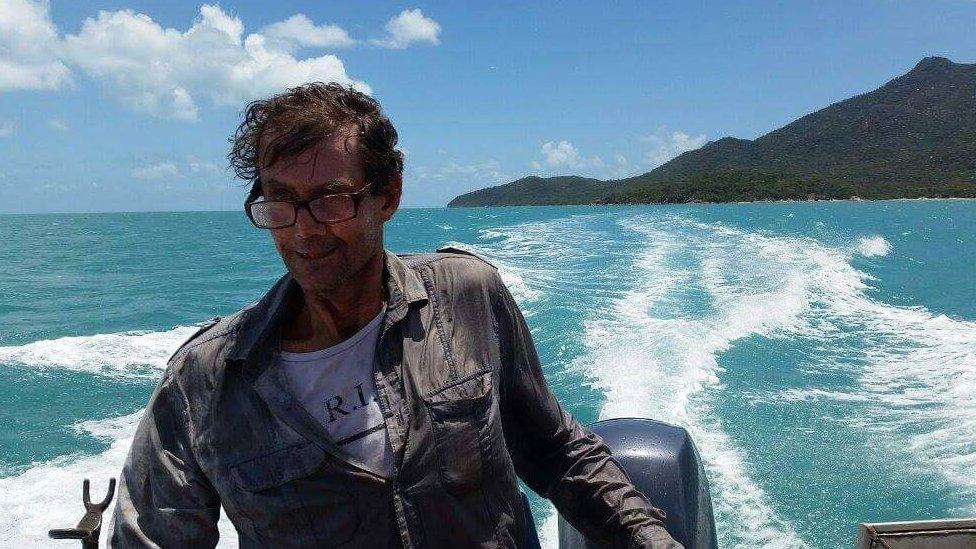
Brett Fallon has now built a new life for himself
Australia's big four banks make billions of dollars in profits each year. But like them or loathe them, the majority of Australians have a financial stake in them with many superannuation - or pension funds - invested in the likes of Westpac and ANZ.
Brett Fallon's contempt for the banks still rages but he is slowly recovering from his self-inflicted wounds, running a campsite for tourists near the Whitsunday Islands in Queensland.
"I look after backpackers from all over the world. They have been a godsend to me these young people. I've created a wonderful new life for myself," he says.
- Published18 September 2016
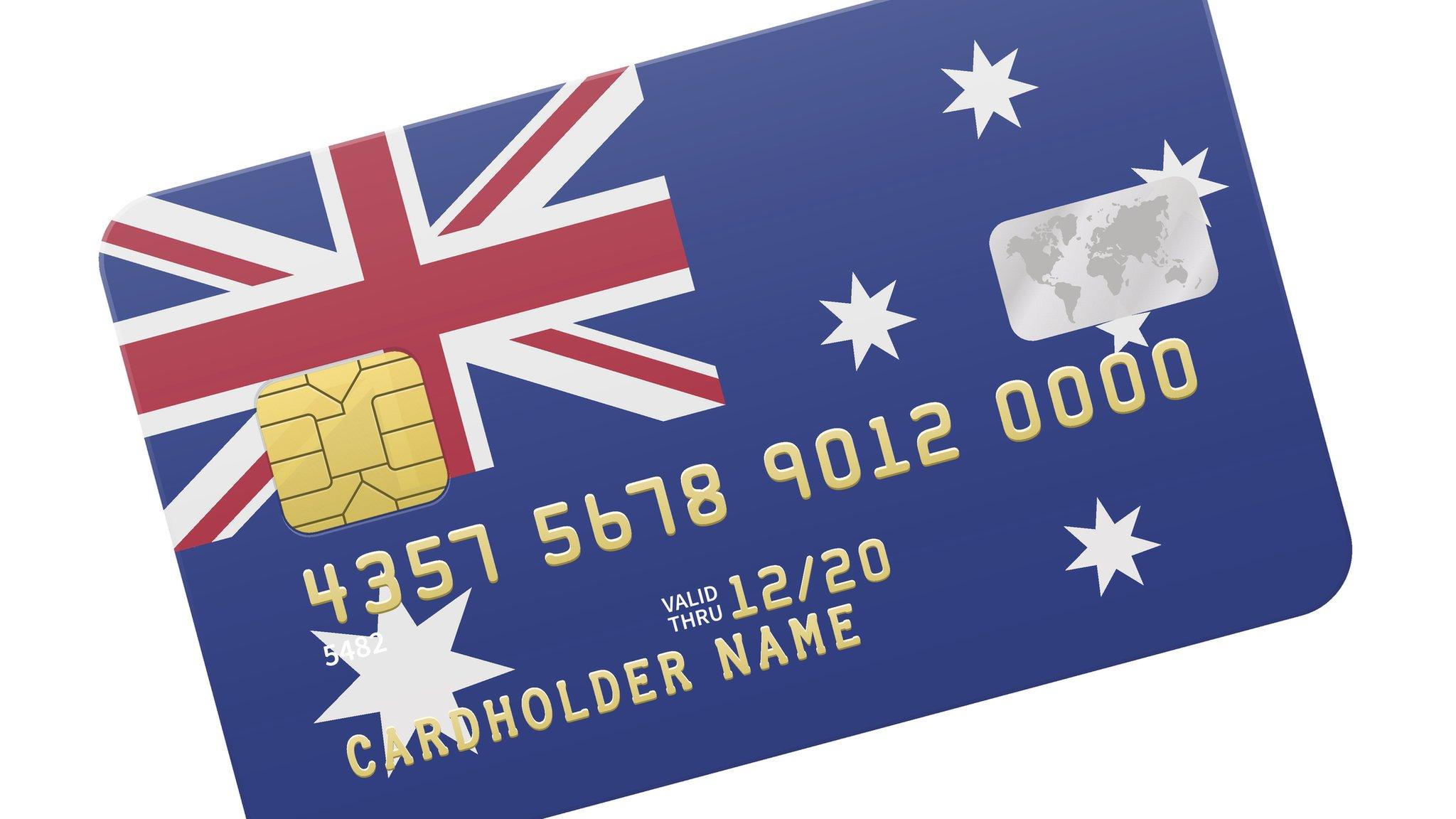
- Published14 December 2016
